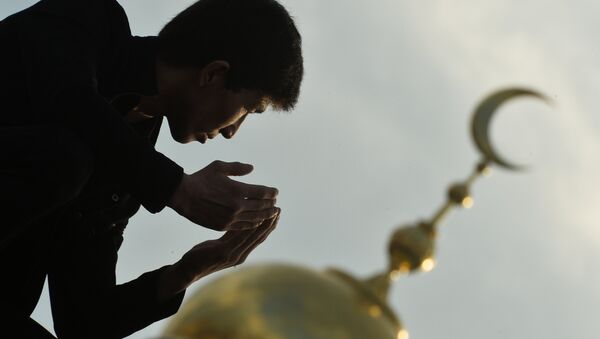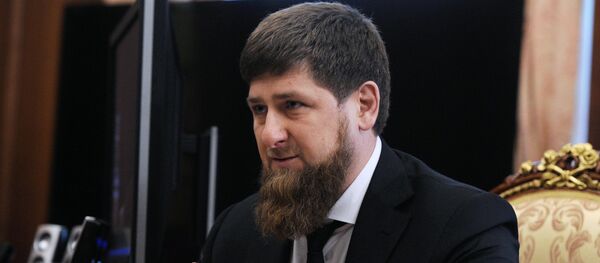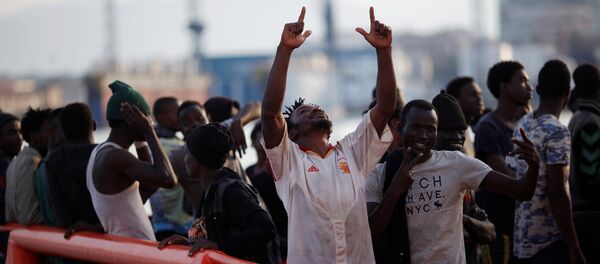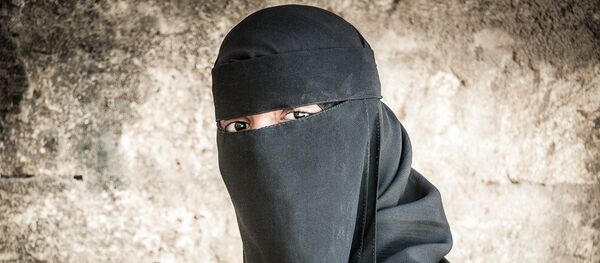On Friday, Muslims from Russia and around the world marked the first day of Eid al-Adha – the 'Sacrifice Feast' festival, one of the religion's most holy and significant holidays, marking the end of the annual pilgrimage to Mecca.
Over 200,000 believers took part in celebrations in Moscow, with hundreds of thousands more coming out to festivities in other cities and regions across the country, especially in Muslim majority regions in the Caucasus, the Republic of Tatarstan, and Bashkortostan.
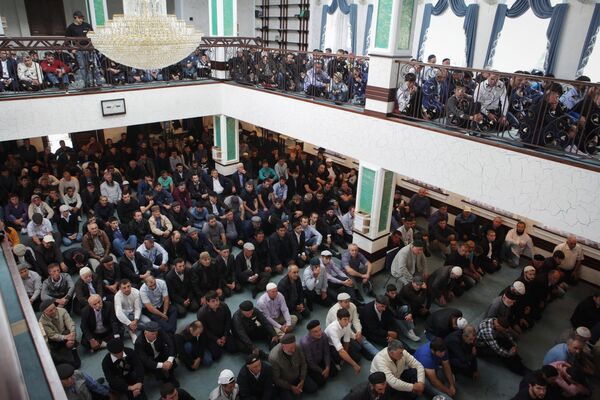
As per tradition, apart from some grumbling from non-Muslims associated with the closure of streets near mosques to traffic in big cities, and the sacrificial slaughter of animals at specially prepared venues (a key symbolic component of the Eid al-Adha holiday), celebrations have taken place without a hitch, and most importantly – peacefully. Following Friday morning's festivities, the Moscow section of the Russian Ministry of Internal Affairs confirmed that no violations of public order have been observed.
The Russian Approach
Unlike many countries in Western Europe, the United States, and Australia, which face active or smoldering political and socio-religious conflicts between Muslim immigrants and the local population, Russia has generally been able to avoid these problems.
In fact, apart from the anti-terrorist campaigns in Chechnya and elsewhere in the Caucasus in the early 2000s, which were more the result of the chaos caused by collapse of the USSR than they were a conflict between civilizations and religions, Russia has been spared the kinds of problems between Muslims and non-Muslims that many Western countries face.
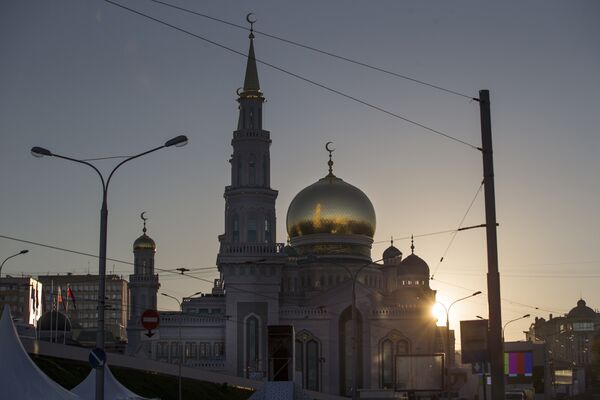
Russian historians say that this form of coexistence and cooperation between Muslim and non-Muslim communities in Russia goes back centuries into the country's history, including the tendency by the Russian Empire to absorb Muslim areas without demanding religious conversion, and the Soviet Union's granting of broad autonomy to majority Muslim regions and to religious communities.
In the post-Soviet period, and particularly under President Putin, Islamic communities have enjoyed a revival alongside other religions amid efforts by the state to find new moral and spiritual values to replace those lost after the collapse of communism.
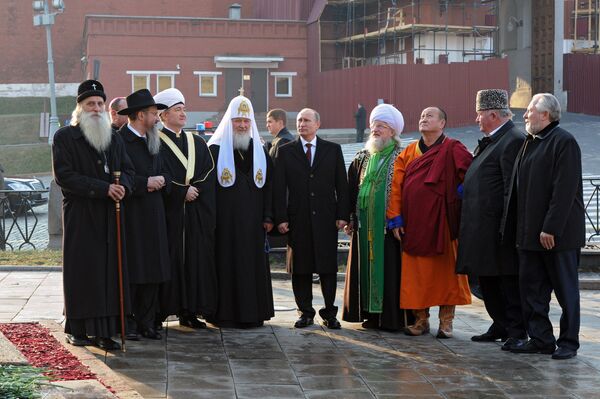
Finally, sociologists have argued that the fact that Russian Muslims are generally not immigrants, but rather long-standing members of their local communities, with roots going back centuries, also plays a major role in reducing frictions with other religious denominations, as well as with non-believers. Unlike in Europe and North America, religious coexistence in Russia is not something enforced between native residents and newcomers, but something that occurs between historical communities, each with rich pasts and the experience of cooperation with the 'other'.
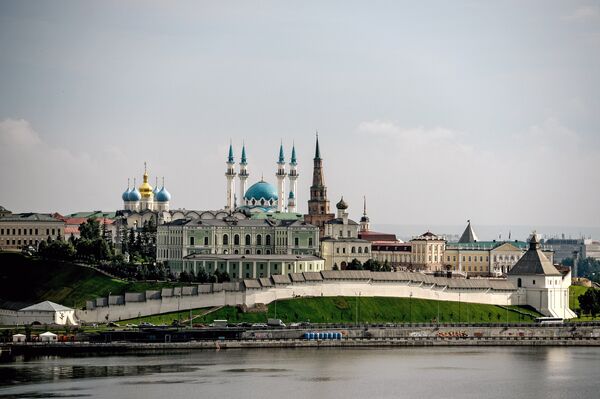
Western Countries: Clash of Cultures or Lack of Communication?
In many countries in Europe, on the other hand, the recent arrival of millions of Muslim immigrants from countries torn apart by war and poverty, combined with the failure by local authorities to ensure the safety and security of their own citizens, has caused dissatisfaction among broad sections of the native population, up to and including the rise of Islamophobic sentiments and fears of ethnic or cultural displacement.
In other countries, including the UK and Austria, authorities have faced problems with self-styled 'Sharia police', gangs of men who patrol the streets, bars, and other establishments to make sure that Muslim women are 'dressed and acting appropriately'. France, meanwhile, has been hit by several waves of controversy over the so-called burkini swimsuit, after several communities along the French Riviera banned the full-body wetsuit on public beaches.
Finally, in the United States, Muslim-non-Muslim tensions are just one aspect among broader tensions between multiple communities, including on a racial basis. This week, ahead of the Eid al-Adha, some Muslim Americans traveling Saudi Arabia for the Hajj pilgrimage said that they were nervous about returning to the US amid the enforcement of President Trump's executive order limiting entry from six Muslim-majority countries.
Ultimately, although Russia and Western nations undoubtedly have differing historical experiences as far as coexistence and cooperation between Muslims and non-Muslims is concerned, perhaps the West might benefit from taking account of the Russian experience in this area.
